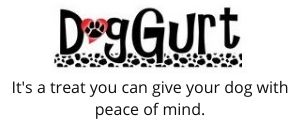- Do you subscribe to Dharma Dog Training’s Newsletter? You should.
- A Unique Campaign from The Humane Society of the United States
- Rabid bats in Omaha- Stay safe, prepared with these tips
- Springtime Activities in Omaha
- Mill Dog Monthly from Bailing Out Benji
- World Spay Day, Legislative Alert in Nebraska
- Attend the Nebraska Rescue Council’s monthly meeting this Saturday
- Five Hard-to-Ignore Reasons to Adopt!
- Paws in Pink to Benefit Breast Cancer Foundation
- VCA, Inc. Acquires MidWest Vet Specialists from Kansas State University
Sick dog? No answers? Ask about Hypothyroidism

Kelley McAtee is a great partner for us here at Pets in Omaha as an expert in dog training and behavior. She’s also a great advocate for dogs and their owners, helping the relationships we have with companion animals. Recently, Kelley told me a story about one of her pups, Marco, and an arduous misadventure in attempting to diagnose his chronic illness.
If you’ve got suspicions about your pet’s condition or just want to be more informed, read this and seek the advice of the people you entrust with your animal’s medical treatment. This is the story in Kelley’s words.
It has been one year since my dog Marco became incredibly ill. We struggled for months and no one in the medical community had answers to help us. After a very long uphill battle and many hours of my own research, he was diagnosed with hypothyroid. Today, we are still working to balance out his hormone levels. I am writing this article to bring awareness to what I believe is an epidemic in our country and to share Marco’s story with you. I tell these stories so dog owners can empower themselves with information and knowledge and be the voice for so many dogs that are suffering from this disease.
I adopted Marco in August of 2013 after he had been left to starve on a chain in Kansas City. Luckily, he was picked up by the Kansas City Pet Project. He lived there for seven months until a kind rescuer brought him to Omaha. Marco was always a generally spooked dog, afraid of everything. He ducked his head and wanted to run if I picked up a broom or any object he was not familiar with. He was terrified of new people and situations. It seemed men could not come within a block of us without an explosion happening at the end of his leash.
We worked on his training every day with my pack. He made great progress and he was manageable in public, around other people and other dogs, but Marco still presented challenges that other dogs I worked with did not. Marco seemed to have issues paying attention and seemed to have trouble retaining information. I would teach him something and it seemed like we’d made progress, but the next day, he seemed to forget everything we went over. This was frustrating and upsetting. I kept wondering what I was missing, but we just kept plugging along and I figured the training would just take longer for him than most other dogs. He had baggage after all…
In May of 2014, I came back from the Million Pibble March on Washington, DC, and I noticed right away that Marco seemed off. His eyes were bloodshot red and he was more jumpy and nervous than usual. For the rest of that week I watched him closely and noticed that he was living in a constant state of stress. If I dropped something, he came about a foot off the floor and was more leery of everything in his environment. That Friday after our weekly hike at the lake, I realized something was very wrong. He refused to eat, was posturing and bearing his teeth around my other dogs- something that he had never done. I put him in a kennel for the evening in order to avoid any fights and took him to a vet the following morning.
The first Veterinarian I took Marco to was someone I had known for a long time. The vet ran a full panel blood test on Marco, which reported as normal. He received fluids, something for digestion and we monitored him over the weekend. Because he seemed fine, I trusted the doctor and went to pick him up on Monday. As they brought him out on a lead, I was even more worried as Marco looked terrified. He didn’t seem to know where he was or even recognize me when I took his leash. His tail was limp. When I got home, his behavior seemed off. He was not himself. He was seemingly in and out of consciousness (mimicking silent seizures) and I also noticed what seemed to be a slight head twitch developing.
Each day I monitored him closely and I could see something was clearly still wrong. The vet recommended we do a spinal tap to clinically determine if it was meningitis and also a CT scan to look at his brain. I agreed because I wanted to know what was wrong with my dog. The day I took him in for the CT scan, the doctor said neurologically he looked fine and now thought it wasn’t necessary. However, because I wanted to know what was wrong with Marco, I pushed for the tests. A few hours later, I received a call from the doctor telling me that Marco had a brain tumor and it was likely cancerous. There was nothing we could do. I was beside myself and in tears. The doctor told me to “just make him comfortable” and “wait until he stops eating.” Once that happened, it would be time to euthanize him.
The news just kept getting worse and worse, but I was not about to let Marco go down without a fight. I knew in my heart that Marco wanted to live and there was something was wrong. I wasn’t sure if I believed it was a tumor. So, like a good dog mom, I began searching out second opinions. I reached out to Marco’s rescuer who was a nurse. We had a local doctor look at Marco’s brain scan and his opinion was that it was not a brain tumor; rather, Marco had an asymmetrical ventricle.
By June, something was still not right with Marco and I was not satisfied with the answers, because I could tell he was still suffering so, I drove him down to Kansas to see the highly recommended Nuero Specialists there. They admitted Marco into the hospital so that he could be seen by the staff Monday morning. After our meeting, the doctor confirmed what they thought was an asymmetrical ventricle on the CT scan- not a brain tumor. They put Marco on three heavy doses of antibiotics because of the bacteria in the spinal tap and recommended another spinal tap to rule out contamination which we proceeded with.
At this point, I became consumed with Marco’s illness. I did not have a social life and studied my dogs behavior every day. He seemed to get a little bit better after the steroids and the antibiotics, but again there was something seriously still wrong with Marco. After the second spinal tap showed bacteria, the Neuro Specialists explained they couldn’t help me further. I was at a loss. This was a dead-end- or so I thought. I felt hopeless. So I did what any other person does when they’re feeling that way, needing answers… I started to Google.
Every spare moment I had between training sessions I searched out information online regarding Marco’s behaviors. A month after visiting the Neuro Specialists, Marco’s behaviors got so bad he could barely function and he started staring at lights and ceiling fans. He would retreat from us, seemed depressed, no longer played with his brothers and became aggressive. One day in late July after many Google searches, I came upon this article by the Whole Dog Journal. A light switched on for me.
It gives great, detailed information about the disease of hypothyroidism and how it affects a dog’s physical and mental state. In my heart, I knew this is what Marco had. During this time, another local Veterinarian had reached out to see how she could help us, so I made an appointment to have her see Marco. I showed her this article and she agreed that this could be a possible explanation. We conducted a full thyroid panel on Marco (because a simple T4 test is not a sufficient test for thyroid diagnosis), but we had to wait a few days for the results and his behavior had gotten so bad I couldn’t wait another day. We started him on a trial dose of thyroid medication until we could confirm this is what he had.
A few days later, sure enough, the results came back and Marco’s levels were critically low. Everything now made sense as to why he was in such a bad state. Finally! I had some answers and I could deal with answers. Being armed with knowledge allowed me to figure out how to best help Marco. Within days and as weeks went on, I slowly started to see Marco’s behavior improve. The lightness came back into his eyes, he stopped retreating and started cuddling again, he began playing with his brothers, going on walks and starting to retain information on our training sessions. Life was not perfect, but we were gaining ground.
Now with Marco’s critical state under control, it was time for me to figure out why his tail still wasn’t working properly. Every time I asked, I was not given any answers, only uncertainty. So in early September, I took him to a local holistic vet that specializes in chiropractic care and acupuncture for dogs. She confirmed that Marco had a pinched nerve in his lower back and a knot in his tail from an injury of some kind. She did a chiropractic adjustment, acupuncture treatment and some cold laser therapy and, what do you know? Marco’s tail began working about 50% more than what it had been before the adjustment
What a journey this had been. Finally, we made more progress and I could see Marco starting to feel better. I found Dr. Dodds’ research on “The Canine Thyroid Epidemic” here. Dr. Jean Dodds, DVM, has done the most research on thyroid issues in dogs in our country and it has helped us tremendously. There are many theories as to what causes Hypothyroid; food, toxins, high and long term stress, over vaccinations, an injury or illness can contribute. Marco is now on a mostly raw diet, takes natural supplements, vitamins, minerals and nutrients because of his compromised immune system. We also started massage therapy for Marco and with those weekly massage appointments, I’m happy to report that Marco’s tail is back to working at about 80 percent.
I want to say that I am truly grateful for vets that have helped me with the information and ongoing treatment for Marco, he would likely still be suffering or dead without it. I wrote this article to help others avoid going through similar experience. I hope it opens up a conversation about thyroid as a possible answer for behavior issues when a dog is not responding normally to ongoing training. And thyroid medications as an option for severe behavior and physical issues, just as prozac and other anti anxiety medications are used in a trial basis. All natural thyroid supplements may improve a dogs overall health, but a dog may also be beyond natural at a certain point. As we all know blood work is work is only one piece of the puzzle; just because a dog is within normal range, does not necessary mean it’s normal for that dog. This is especially important to remember when it comes to a dog’s quality of life, and at times a matter of life or death.
I have spoken to local Veterinarians regarding Dr. Dodds research and because it seems to be controversial in the medical community, many of my clients are struggling to get a proper diagnosis for their dogs or even a trial of medication because Hypothyroidism is commonly only recognized in older dogs being overweight, lethargic or losing hair. But this is only apparent after the thyroid gland is mostly destroyed, and in young dogs like Marco, who was 3 years old, it is mostly apparent in their behaviors. Dr. Dodds and her staff have created a lab specializing in diagnosing thyroid illnesses for those struggling to get a proper diagnosis. Find them here: http://www.hemopet.org/
I have worked with hundreds, if not thousands of dogs over the years, and because of Marco, I am hyper-alert of any dogs coming in with physical issues and/or behavioral issues that are not being solved with training. Some dogs were even to the point of euthanization and the thyroid test saved their dog’s life. I can’t say that I am happy that Marco has this illness, but I am grateful for this experience so that I can help other dog owners.
It has taken almost seven months to figure out Marco’s proper Synthroid dosage with repeated testing and we will continue treat him. Will Marco ever be 100% again? I think that he will always be a dog with an illness that must be managed. We have to look at keeping a calm household, maintaining a clear pack status, a low stress environment and a good diet with proper minerals and nutrients while making sure that his medication is in balanced and given an hour prior to mealtime. going through similar issues with their dogs.
Ideally dog owners, dog trainers, and veterinarians will become a team, working in partnership to come up with a plan that is in the best interest of the dog when it comes to behavior issues; whatever that medical or physical issue is. As the physical part of the dog is just as important as the mental. And listening and believing our clients when they us tell them something is off with their dogs is important. Hopefully with understanding and education we will be able to ensure that other dogs dont have to go through what Marco did. Here is a link on our website dedicated to Marco and his illness. http://www.
The more knowledge we have the more dogs we can help together. Remember- we don’t get the dogs we want, we get the dogs we need!
Related Posts
Latest News
-
Join Us at Pick A Pooch 2025: A Fun-Filled Weekend for the Whole Family
A Fun-Filled Weekend for Pet Lovers and Families Alike Mark...
- Posted 1 year ago
- 0
-
Beardmore Presenting Sponsor At This Years Pick-A-Pooch event
🐾 We are thrilled to announce that Beardmore Subaru is...
- Posted 4 weeks ago
- 0
-
How Having A Pet Can Change Your Life
Having a pet can open your heart in ways that...
- Posted 2 months ago
- 0
-
How To Improve The Life Of Your Senior Pet
Do you have an elderly fur baby and want to...
- Posted 3 months ago
- 0
-
Springtime Activities To Enjoy With Your Furry Friends
Are you preparing for warmer weather and want some ideas...
- Posted 4 months ago
- 0
-
Pros And Cons Of Microchipping Your Pets
Have you considered whether your pets should be microchipped and...
- Posted 5 months ago
- 0
-
The Best New Fun Toys For Dogs And Cats
The Best New Fun Toys For Dogs And Cats Did...
- Posted 5 months ago
- 0
-
Heartfelt Ways To Show Your Pet You Love Them
Did you know there are more ways to show your...
- Posted 6 months ago
- 0


























You must be logged in to post a comment Login